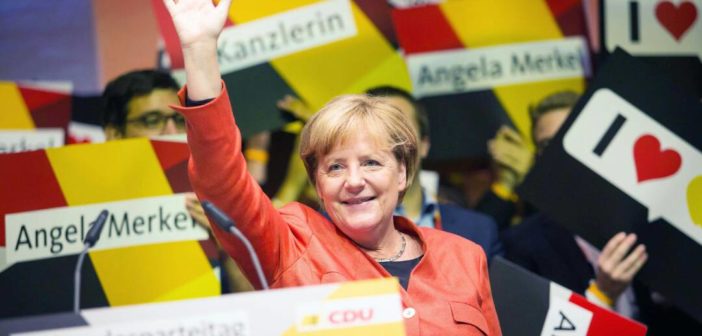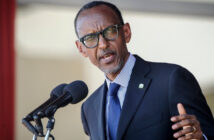Its election day in Germany and Chancellor Angela Merkel is projected to win a historic fourth term. The big news is not about Merkel’s victory but the likely entry of the far-right party into the German parliament in more than half a century.
Merkel had suffered setbacks over her 2015 migrants policy in some regional elections to the the hard-right Alternative for Germany (AfD). She allowed nearly 1m migrants into the country. Germany is the biggest economy in Europe. She quickly adjusted her migrants policy and had since bounced back.
Merkel campaigned with renewed conviction: a resolve to re-tool the economy for the digital age, to head off future migrant crises, and to defend a West alliance weakened by Donald Trump’s U.S. election victory.
“We want to boost your motivation so that we can still reach many, many people,” the chancellor, 63, said in Berlin on Saturday before heading north to her constituency for a final round of campaigning.
An INSA poll published by Bild newspaper on Saturday suggested that support was slipping for Merkel’s CDU, who dropped two percentage points to 34 percent, and the SPD of Martin Schulz down one point to 21 percent – both now joined in an unwieldy “grand coalition”. The anti-immigrant AfD rose two points to 13 percent, putting it on course to be the third-largest party.
If Merkel win a fourth term, she will join the late Helmut Kohl, her mentor who reunified Germany, and Konrad Adenauer, who led Germany’s rebirth after World War Two, as the only post-war chancellors to win four national elections.
On the other hand, the projected entry of the AfD into the German Parliament will herald an era of more robust debate in German politics- a departure from the steady, consensus-based approach that has marked the post-war period.
Electoral arithmetic might push Merkel to renew her grand coalition with the SPD, or she might opt for a three-way alliance with the pro-business Free Democrats (FDP) and environmentalist Greens.
Merkel’s victory will be good for the EU and indeed the world. The German economy is healthy under her leadership and she has continued to be a major player in world’s affairs drawing global commendation. Her victory will also strengthens the EU’s hand in Brexit negotiations with the UK.
Voting opened at 8 a.m. and will continue until 6 p.m.





